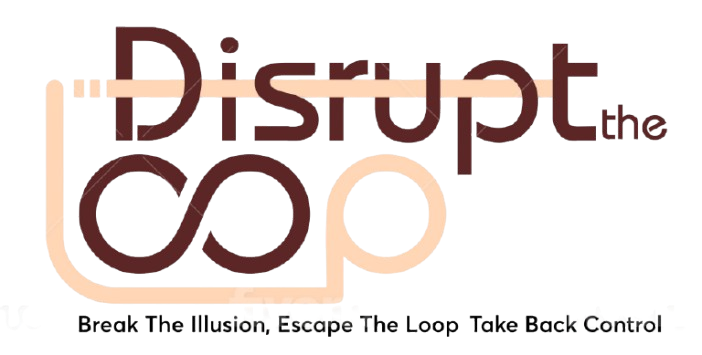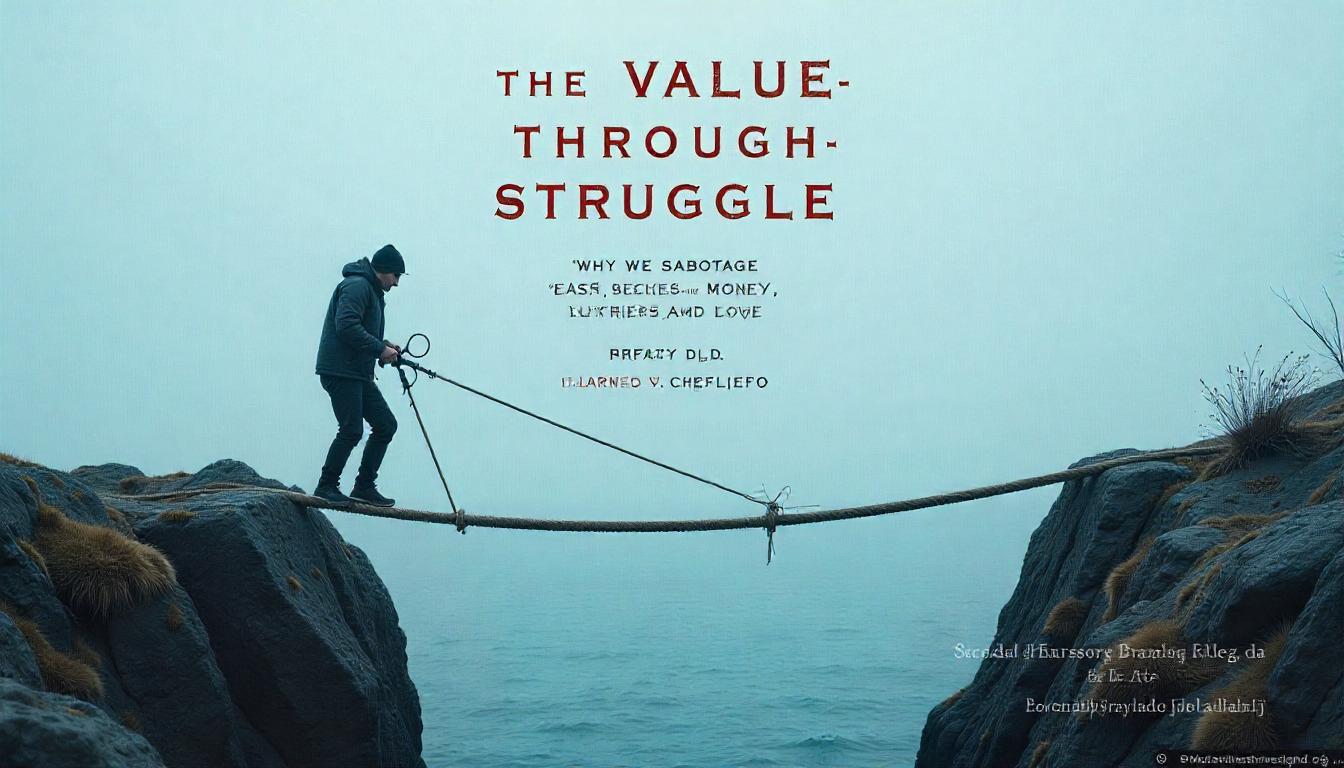We’ve all been there. Success comes a little too easily, and instead of embracing it, we complicate things, second-guess ourselves, or even actively sabotage our own achievements. This tendency shows up in every area of life—from how we manage money and knowledge to how we navigate relationships.
- Lottery winners lose fortunes overnight.
- Students insist on learning “the hard way” despite abundant knowledge at their fingertips.
- Loving, stable partners get overlooked for relationships filled with drama.
Why does this happen?
At the root of it is what I call the Value-Through-Struggle Trap—a deep-seated mental script that makes us equate value with hardship. In other words:
Value = Struggle × Outcome
When struggle is absent, our brains begin to question the worth of the outcome—no matter how valuable it actually is.
The Blackjack Moment: When Your Brain Rejects Easy Wins
To understand how deeply this programming runs, let’s take a trip to a blackjack table.
Imagine the dealer flips over a ten or an ace. Your stomach clenches. Your heart races. A flood of anxious thoughts kicks in:
- “They’ve got 20 or blackjack for sure. I’m going to lose.”
- “Maybe I should hit, just in case.”
- “I should increase my bet to make up for earlier losses.”
In this moment, the anxiety hijacks your decision-making, leading you to irrational choices that actually increase your chances of losing.
But here’s the strange part: even if you win, you may not feel like you deserved it. Your brain is wired to expect struggle before success. Without that struggle, it feels like something is off—so it looks for ways to correct the “imbalance,” often by creating unnecessary difficulties later on.
This isn’t just bad gambling strategy—it’s a fundamental cognitive bias that influences every area of life.
The Cultural Roots of the Struggle Trap
Where does this belief come from?
It’s deeply embedded in cultural, religious, and societal narratives. Consider some of the most common sayings we grow up with:
- “Nothing worth having comes easy.”
- “You have to pay your dues.”
- “No pain, no gain.”
- “Knowledge increases sorrow.”
These aren’t just motivational slogans; they’re mental programming. Over time, they become the unconscious scripts that shape how we assign value to effort and reward.
This explains why so many people feel uncomfortable with success unless they’ve “earned” it through suffering—even when that suffering is unnecessary.
Why We Reject “Easy Money”
The Value-Through-Struggle Trap is especially evident when it comes to money.
1. Lottery Winners Who Lose It All
Studies show that nearly 70% of lottery winners end up broke within a few years. They make bad investments, overspend, or even give their money away recklessly. But why?
Because money that comes too easily feels unearned. Their brains register a kind of cognitive dissonance, creating subconscious behaviors that “correct” the mistake—often by returning to financial struggle.
2. The Curse of Inherited Wealth
The same thing happens with inherited wealth. Children of the ultra-rich often squander fortunes within a generation. Why? Because they never had to struggle for the money, so their brain assigns it less value.
3. The Suspicion of “Easy Come, Easy Go”
We’ve all been conditioned to be skeptical of financial success that happens too quickly. That’s why we instinctively distrust:
- Get-rich-quick schemes (even when they’re legitimate)
- Passive income strategies (even when they work)
- Business opportunities that seem too good to be true
Our internal accounting system tells us that money must be earned through effort, or it’s not real.
Why We Resist Learning the Easy Way
The Value-Through-Struggle Trap also affects how we absorb knowledge.
Consider this: You could learn from a book, a mentor, or a painful personal experience. But for many people, only the painful experience feels like “real learning.”
This explains why so many of us:
- Ignore wise advice, insisting on learning the hard way.
- Underestimate knowledge gained from books, preferring “hands-on experience.”
- Think struggle is necessary for true mastery.
This bias even shows up in ancient texts like Ecclesiastes:
“With much wisdom comes much sorrow; the more knowledge, the more grief.”
But is struggle really the best way to learn?
Cognitive science suggests otherwise. We don’t need pain to retain knowledge—we just need strong emotional engagement. But because we associate struggle with value, we unconsciously resist “easy” learning.
Why We Devalue Stable, Loving Relationships
Perhaps the most damaging effect of the Value-Through-Struggle Trap is in romantic relationships.
You’ve probably seen this pattern before:
- The stable, reliable partner gets overlooked.
- The emotionally unavailable partner is seen as a prize to be won.
- Drama, unpredictability, and emotional turmoil make the relationship feel “exciting.”
This isn’t about men chasing toxic women or women wanting “bad boys.” It’s about a subconscious bias that devalues ease and stability.
When someone is:
✅ Openly interested
✅ Consistently reliable
✅ Emotionally available
…they don’t trigger our brain’s struggle-based reward system. Instead, we feel like something is missing—because we’ve been conditioned to believe that love must involve hardship.
Breaking Free From the Struggle Trap
So how do we escape this cycle?
1. Stop Associating Struggle with Value
Ask yourself: Would this still be valuable if it came easily?
If the answer is yes, then stop manufacturing struggle just to make it feel “real.”
2. Learn to Accept “Unearned” Success
If money comes easily, your challenge isn’t earning—it’s managing.
If knowledge comes easily, your challenge isn’t learning—it’s applying.
If love comes easily, your challenge isn’t attraction—it’s maintaining deep connection.
3. Create Healthy Challenge, Not Artificial Struggle
Instead of seeking struggle for its own sake, focus on productive challenges:
- In money: Learn wealth-building strategies.
- In learning: Master a complex skill.
- In love: Invest in deep emotional intimacy.
4. Train Yourself to Tolerate Ease
If ease makes you uncomfortable, lean into it slowly. Give yourself permission to experience success without guilt or self-sabotage.
The Revolutionary Act of Embracing Ease
In a world that glorifies hustle, suffering, and drama, choosing ease isn’t just smart—it’s radical.
- What if success didn’t have to be painful?
- What if money could come effortlessly—and stay?
- What if love didn’t need struggle to be real?
The most advanced form of success isn’t enduring maximum suffering—it’s creating maximum value with minimum struggle.
Maybe the most revolutionary thing you can do is allow yourself to win—and keep your winnings.

